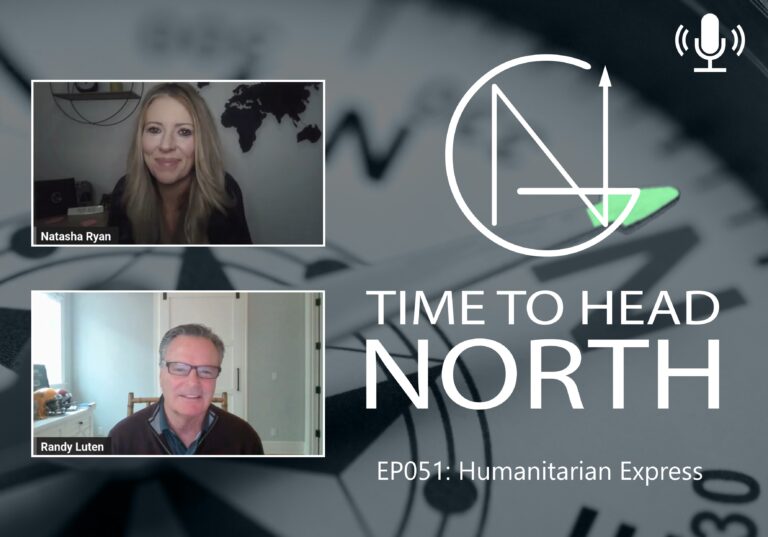In this episode of “Time to Head North,” TNG has a round table with four of its own, two intelligence analysts, Sam Tobias & Jacob Hauser, a former news anchor, Natasha Ryan, and veteran/actor, Vince Vargas, to discuss misinformation. This is an especially important topic right now as most Americans are trying to separate the facts from fiction coming out of Ukraine.
It is the job of an intelligence analyst to truly analyze data. That means nothing is taken for granted as truth and everything is checked against other sources until it can be disclosed as true or false information.
The episode goes in depth on where to look for the most accurate available information, insight into mainstream media practices and a great example of how simple it is to manipulate information.
One of our analysts put together this list:
RECOGNIZE YOUR OWN BIAS
CHECK THE DOMAIN NAME
Look at the three letters at the end of the site’s domain name, such as “edu” (educational), “gov” (government), “org” (nonprofit), and “com” (commercial). Generally, .edu and .gov websites are credible, but beware of sites that use these suffixes in an attempt to mislead. Nonprofit websites may also contain reliable information but take some time to consider the organization’s purpose and agenda to determine if it could be biased. Commercial websites, like reputable news organizations, can also be good sources, but do some investigation to look for signs of reliability.
EXAMPLE: Don’t use .ru sites to look for credible information pertaining to the Russian Invasion of Ukraine
Also, you can check online to see who owns a domain name and whether the owner’s IP address is in the U.S. or abroad.
2. TAKE A CLOSER LOOK AT THE SOURCE
Does the article or study have any authors listed? If so, do they cite or link to authoritative sources, or are they writing their own opinions without backing these up with facts? Are their credentials listed?
Additionally, check the date of publication. In some cases, it may not matter if the source is older or hasn’t been recently updated, but in fields of study where information can rapidly change, the data may mean the piece is obsolete.
3. SEARCH FOR ADDITIONAL INFORMATION TO BACK UP WHAT YOU’VE FOUND
As you find information, try to verify its authenticity and legitimacy using other reliable sites. If you find another credible site that contradicts your original source, further research may be required.
4. USE CERTAIN SOURCES ONLY TO JUMP-START ADDITIONAL RESEARCH
Wikipedia
Wikipedia offers a large volume of information, but because its entries are created in a collaborative effort involving many different users, its reliability can vary widely. In some cases, users deliberately place incorrect information on the site; in others, well-meaning users unintentionally introduce inaccuracies. For these reasons, you can use Wikipedia as a jumping-off point to spark more research, but not as a source on its own.
Individual blogs, online forums, chat rooms, etc.
Much like Wikipedia, sources such as individuals’ blogs, online forums and chat rooms can be used to fuel further research, but shouldn’t be relied upon as sources of dependable information.
SEARCH FOR GENERAL INFORMATION – NOT AN ARGUMENTATIVE STANCE
If you’re looking for a news source reporting on a recent event, the way you search can really affect the results you receive. Searching for generic topics without a bias in your question helps you avoid argumentative results. Here’s an example:
Search: “news global warming”
Top Results:
“Global warming pause has ended…”
“Experts admit global warming predictions wrong”
“Baseball star Syndergaard: Hurricanes may be ‘global warming’…”
“More than 300 companies worldwide have committed to curb global warming…”
WHAT ARE SOME INDICATORS OF BIAS ON A WEB PAGE?
- The language of the document is often extreme; statements have all or nothing connotations.
- The argument appeals more to the emotions than to logic.
- Things are worded with the intent to oversimplify or over generalize.
- The author wishes to present a limited view of the topic.
You should expect bias on webpages that are dedicated to selling you something. Additionally, webpages dedicated to controversial topics are likely to have a bias.
QUESTIONS TO KEEP IN MIND AS YOU SEEK INDICATORS OF BIAS:
- What is the author’s political point of view?
- What does the author stand to gain?
- Who is paying for the website?
- Does the author present alternate points of view?
- If so, are those views presented objectively, or with scorn
Top “unbiased” news sites
Here are some of the best “unbiased” news sites available on the Internet:
Reuters – Reuters avoids making judgements about the news until facts are established. For example, they are known for not labelling events as “terrorist acts” until culprits and their motives have been revealed; instead, they simply report the known facts of what happened.
C-SPAN – C-SPAN publishes videos of live events, primarily taking place in the United States, so you can watch the news live, as it’s happening, and draw your own conclusions without a journalist’s bias.
Evaluating Your Sources
In your search for information, you eventually face the challenge of evaluating the resources you have located and selecting those you judge to be most appropriate for your needs. Examine each information source you locate and assess sources using the following criteria:
Timeliness
Your resources need to be recent enough for your topic. If your paper is on a topic like cancer research, you would want the most recent information, but a topic such as World War II could use information written in a broader time range.
Authority
Does the information come from an author or organization that has authority to speak on your topic? Has the information been peer-reviewed? (You can use Ulrichsweb to determine if a journal is peer-reviewed). Do they cite their credentials? Be sure there is sufficient documentation to help you determine whether the publication is reliable including footnotes, bibliographies, credits, or quotations.
Audience
Who are the intended readers and what is the publication’s purpose? There is a difference between a magazine written for the general public and a journal written for professors and experts in the field.
Relevance
Does this article relate to your topic? What connection can be made between the information that is presented and your thesis? An easy way to check for relevance is by reviewing the Abstract or Summary of the article before downloading the entire article.
Perspective
Biased sources can be helpful in creating and developing an argument, but make sure you find sources to help you understand the other side as well. Extremely biased sources will often misrepresent information and that can be ineffective to use in your paper.
Watch the entire episode below and come back to our website for more videos like this one.







